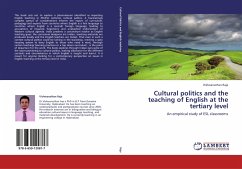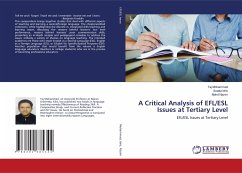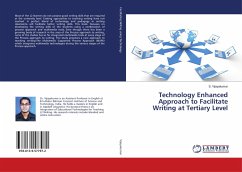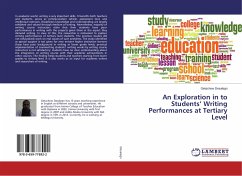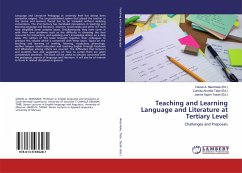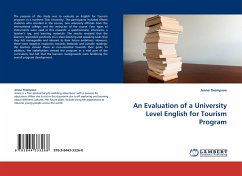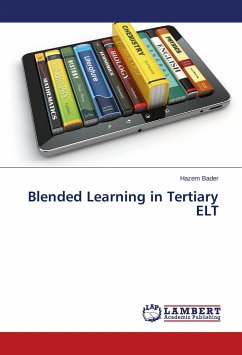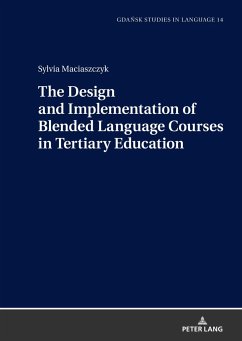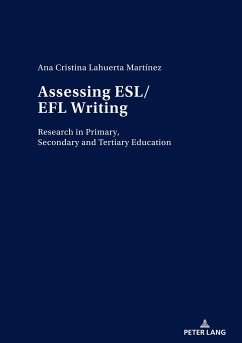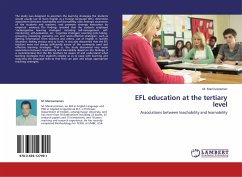
EFL education at the tertiary level
Associations between teachability and learnability
Versandkostenfrei!
Versandfertig in 6-10 Tagen
32,99 €
inkl. MwSt.

PAYBACK Punkte
16 °P sammeln!
The study was designed to ascertain the learning strategies the students would usually use to learn English as a foreign language (EFL), determine associations between teachability and learnability, raise strategic awareness of the students and teachers, and promote strategy instruction by empirical evidence. The findings revealed that the students employed metacognitive learning strategies including self-management, self-monitoring, self-evaluation, etc, cognitive strategies covering note taking, grouping, repeating, guessing, etc, and socio-affective strategies , such as getting information ...
The study was designed to ascertain the learning strategies the students would usually use to learn English as a foreign language (EFL), determine associations between teachability and learnability, raise strategic awareness of the students and teachers, and promote strategy instruction by empirical evidence. The findings revealed that the students employed metacognitive learning strategies including self-management, self-monitoring, self-evaluation, etc, cognitive strategies covering note taking, grouping, repeating, guessing, etc, and socio-affective strategies , such as getting information from teachers and others, use of English in real-life situations, feeling anxious and so forth. It was also discovered that the EFL teachers were not always sufficiently aware of the commonly used and effective learning strategies. That is, the study discovered very weak associations between teachability and learnability. Based on the findings, it is recommended that the EFL teachers be aware of and understand what learning strategies their students employ so as to cope with learning and acquiring the language skills so that they can plan and adopt appropriate teaching strategies.



